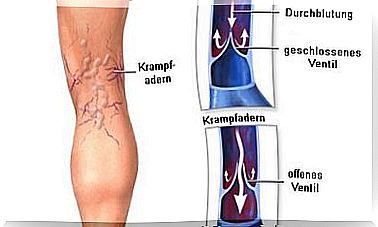6 Things For Your Hospital Bag
You should start packing your hospital bag about 3 to 4 weeks before your baby is born. Because you can never know whether the little one might want to make their way into our world too quickly. So it is better that you have already prepared the most important things for the clinic.

The end of pregnancy is approaching and of course you are already very excited. And like all of us, you want the day of your birth to come as soon as possible. At home you have already prepared everything as well as possible. Now all you have to do is decide what to pack in your hospital bag.
Of course you can find a variety of lists on the Internet. Some of them are more detailed than others. But they all give you information about what to pack in your hospital bag on the day of delivery .
Most importantly, you use common sense as you prepare things for the clinic.
If you have a normal pregnancy, everything should go smoothly during the birth. This means that you usually don’t have to stay in the hospital for more than 2 or 3 days.
Don’t worry, you don’t need the entire contents of your wardrobe or that of your baby for your hospital bag!
What should you put in your hospital bag?

When preparing your hospital bag, it is important to consider what is really necessary. You certainly cannot and do not want to arrive at the clinic with a huge baggage.
Too many bags or suitcases are just impractical. Ideally, you should know what is in each piece of luggage. So if you need diapers for the baby, for example, you know where they are. And the same goes for any other thing you take with you to the hospital.
The days around the birth of your baby are beautiful, but also exhausting. Therefore, you should avoid adding additional stress to yourself. Because you certainly don’t want to test your own patience because you have to search for the different things in an endless number of bags and suitcases.
Here we present a suggestion for the organization of your hospital bag that can be helpful to you.
1. Important documents and papers
You should have your most important documents and papers in a folder in an easily accessible outer pocket of your hospital bag. You can also take a copy with you next to the originals.
Because you may need one of these:
- Identification papers
- Health insurance card
- Briefing slip
- Doctor’s prescriptions if you took medication during pregnancy.
- Results of the last examinations (including blood values, ultrasound or other studies)
2. Clothes for you as a mother
After the birth of your baby, of course, you lost a good portion of the pounds you gained during pregnancy. But it is by far not the case that you immediately look the same as you did before pregnancy.
So you need comfortable, loose-fitting clothing.
In the event of a caesarean section, you will most likely need help getting dressed. This is why it is useful to bring clothes that are easy to put on and take off:
- Nightgowns or pajamas that can be opened from the front.
- High waist underwear (if you need a caesarean section, such underwear is better because it can be worn comfortably over the scar ).
- Nursing bras or bras that are a size or two larger than usual. Even if you shouldn’t breastfeed, the milk will rise to your breasts. Then you can’t wear anything that’s too tight.
- Socks (in case it gets cold).
- Bath or shower towel.
- Clothes to leave the clinic.
- Slippers for your first steps after delivery. In addition, flip-flops to take a shower or a bath.
3. Clothes for your newborn baby

It is important that your baby’s clothes are in the same bag as the rest of the delivery items.
Avoid tucking baby things away in separate pockets. It is likely that your partner or companion will hand over the baby’s clothes to hospital staff.
Therefore, the following also applies here: the easier it is to find baby items, the better.
- Bodysuits and rompers
- Socks
- Hats
- Small blankets
- Shirt or jacket
- Cotton towels. Visitors should use these when they want to hold your baby in their arms.
- towel
- Clothes to leave the clinic
- A carrycot or a baby seat for the car
One of the things you don’t need to pack in your hospital bag is wet wipes (you’ll only need these when you leave the house later).
Gloves or mittens are also not necessary. Very often your baby will bring his hands to his mouth. It has done so countless times in the womb. It’s a natural reflex.
4. Hygiene items for you as a mother
Some hospitals have some personal hygiene products available. But you should bring your own. Because you will feel more comfortable with it.
Especially when it comes to intimate hygiene, it is best to bring the products you prefer with you.
- Sanitary napkins. Bleeding is common after delivery. You may also have mild urinary incontinence.
- Shampoo, conditioner, and any other products that you use to care for your hair.
- Make up. You are sure to get a lot of visits from family and friends. And motherhood will give you a special shine. But you may still want to apply a touch of lipstick, mascara, and blush anyway.
- Body and face moisturizer, makeup remover.
- Deodorant.
- Toothpaste or mouthwash.
5. Hygiene items for your baby

Of course, one of the first things in your hospital bag is the disposable diapers for your baby. The same applies to hygiene items as to clothing: It’s best to pack everything in the same bag or suitcase.
A good amount is between 20 to 24 disposable diapers. Also take airtight plastic bags with you.
With this you can hand over the diapers or baby clothes to the hospital staff. You should also bring a moisturizer for your baby’s skin with you. You can also pack a wound cream.
6. Small thank you
Prepare a few sachets, glasses, or small boxes as a thank you. These should have your baby’s name on them. So you can give a little thank you to those who visit you in the clinic.
This trifle can include cookies, chocolates, dried fruit or nuts.
These small gifts are a nice gesture for those who have been with you in the hospital. And also for your other children (if you have any). Or for other family members and friends welcoming your newborn baby.









